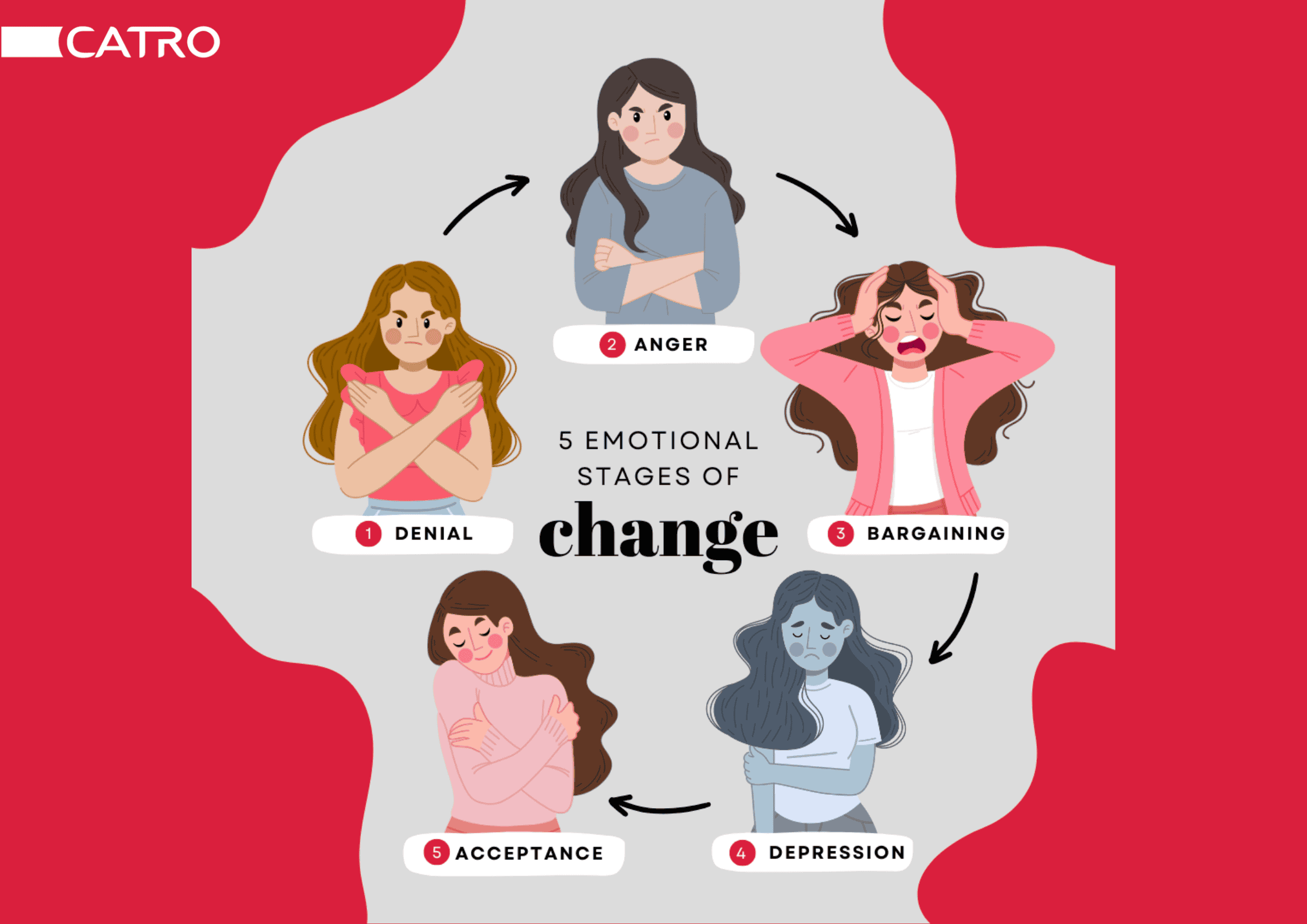A Journey Through the Kübler-Ross Model
In the dynamic times we live, change is constant. In our work, in our relationships, even within ourselves — we are always evolving. But if change is so natural, why does it often feel so difficult?
The psychiatrist Elisabeth Kübler-Ross in her book “On Death and Dying” outlines a framework for understanding the emotional journey people often go through when facing death or other major life changes and losses, such as divorce, job loss, illness, or trauma. This framework has become a powerful tool for understanding our reactions to change of all kinds — whether it is an organisational restructure, a leadership transition, an adoption of new technology, or even changes in your personal life.
Let’s dive into the Five Stages of Change!

According to Kübler-Ross, change often disrupts our comfort zones and expectations. But how we experience change is deeply personal—and often emotional. The 5 stages of change were initially applied to explain the emotional stages trough which every person pass in a situation of a personal loss, but recently it has been widely used to support individuals and teams in navigating every type of change they experience – personal, professional, organisational and social.
Let’s explore the 5 stages of the Kübler-Ross model and reflect along the way through the stages of Denial, Anger, Bargaining, Depression and Acceptance. Just flip the boxes.
1. Denial
At first, change often feels like a disruption, not an opportunity. Denial is a natural defence mechanism — a pause before we face what is really happening.
Quick stop for reflection:
When was the last time you resisted a change simply by pretending it was not real?
2. Anger
As reality sets in, emotions rise - frustration, blame, feeling of hostility. This stage is uncomfortable, but it is also a sign that we are starting to engage with the change.
Quick stop for reflection:
What is underneath your anger (your deeper emotion/need) — fear, uncertainty, loss of control?
3.Bargaining
We look for ways to soften the blow or delay the inevitable. This stage is about regaining control, but it can also be where we stall, trying to negotiate instead of adapt.
Quick stop for reflection:
When you were in a situation in which you were holding on to “what was” instead of exploring “what could be”?
4. Depression
This is the most inward stage. It can feel like a drop in energy, motivation, or clarity. It is a signal to slow down, feel, and begin to let go.
Quick stop for reflection:
What support do you need in this stage — and are you asking for it?
5. Acceptance
Acceptance does not mean liking the change, but it means finding a way to move forward with it. Here, we begin to see possibilities again — and perhaps, even growth.
Quick stop for reflection:
What would it take for you to turn this change into an opportunity for personal or professional transformation?
Moving Through Change
The journey through these stages is rarely linear—and it is different for everyone. Some people move quickly through one stage and get stuck in another. Others revisit stages more than once. And that is okay.
A common misconception is the “Tarzan Swing”—the belief that we can skip directly from the stage of Denial directly to Acceptance, bypassing the emotional turbulence of the intervening stages like Anger, Bargaining, and Depression. However, the reality according to the Kübler-Ross model is that change is not a straight line. We cannot rush through anger or bargaining—or even skip the emotional heaviness of depression—because they all contribute to our emotional and psychological adjustment. Understanding that these stages allow us to approach change with greater patience and compassion, both for ourselves and for others.
Bare in mind that you may experience several change curves in one and a same time – professional and personal for example. And this is not rare.
Self-awareness is key
In times of transition, self-awareness is key. By recognizing where we are emotionally, we can respond more constructively—not just for ourselves, but for those around us. And when we give space for others to process change at their own pace, we foster a more empathetic and resilient workplace.
Where are you on the curve right now? Take a quiet moment today to check in with yourself.
Change is not just a challenge. It is an invitation to evolve. Embrace it!
